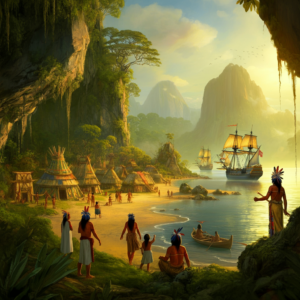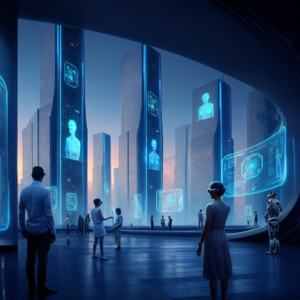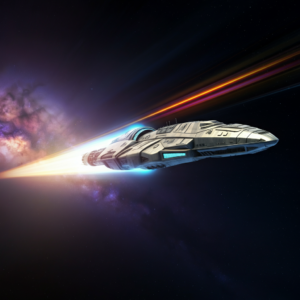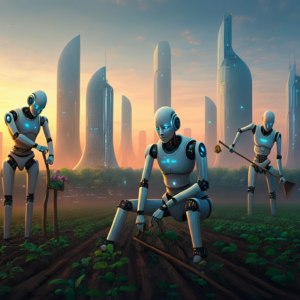Artificial intelligence (AI) is one of the most transformative technologies of the modern era, impacting industries, societies, and individual lives. But what if AI had been invented in the 19th century, during the Industrial Revolution? How would an earlier introduction of this groundbreaking technology have reshaped humanity’s trajectory? Let’s dive into two fascinating possibilities.
Possibility 1: Accelerated Industrial and Scientific Advancements
The 19th century was a time of rapid industrialization and scientific discovery. If AI had emerged during this period, it could have acted as a catalyst for unprecedented technological progress.
Impacts on Industry and Economy
- Automated Factories: AI-driven machines might have revolutionized factories, automating production lines and increasing efficiency. The shift from human labor to machine intelligence could have enabled mass production at a scale unimaginable for the time.
- Global Trade Boom: Intelligent systems could have optimized trade routes, supply chains, and resource allocation, accelerating globalization much earlier.
- Economic Disparities: The introduction of AI in a world with limited social safety nets might have widened the gap between industrialized nations and those without access to advanced technology.
Impacts on Science and Innovation
- Scientific Discoveries: AI algorithms might have expedited breakthroughs in chemistry, physics, and medicine, potentially leading to earlier cures for diseases and the discovery of new materials.
- Space Exploration: With AI’s computational power, humanity might have embarked on space exploration decades earlier, developing rudimentary spacecraft to explore the Moon or Mars.
While these advancements seem promising, they might also have brought challenges. Societies unprepared for such rapid change could face disruptions, including job displacement and ethical dilemmas about AI’s role.
Possibility 2: An Early AI Arms Race
In a world where AI emerged during the politically turbulent 19th century, its development might have been weaponized, leading to an early technological arms race.
Impacts on Warfare
- Smart Weapons: Nations might have developed AI-driven weaponry, from autonomous drones to intelligent artillery systems, fundamentally altering warfare.
- Tactical Superiority: Armies equipped with AI systems could have gained significant advantages, potentially leading to faster and more destructive conflicts.
- Global Alliances and Tensions: The pursuit of AI technology might have influenced geopolitics, creating alliances and rivalries centered around access to advanced systems.
Impacts on Society
- Surveillance States: Governments might have used AI for mass surveillance, controlling populations with unprecedented precision. This could have led to earlier debates about privacy and civil liberties.
- Resistance Movements: The misuse of AI might have sparked early resistance movements, with activists and thinkers questioning the moral implications of intelligent machines.
The militarization of AI could have shaped the 20th century into an era dominated by conflict and technological competition, delaying the cooperative advancements we see today.
The Ripple Effects
Both scenarios suggest profound impacts on human history:
- Economic Transformation: AI could have reshaped labor markets, creating industries reliant on machine intelligence while displacing traditional jobs.
- Ethical Frameworks: The early advent of AI might have forced societies to confront ethical questions about technology much earlier, influencing laws, culture, and philosophy.
- Cultural Shifts: From literature to art, the presence of intelligent machines could have inspired a wave of creative expression and existential reflection.
Conclusion
The invention of AI in the 19th century presents a tantalizing ‘What If’ scenario. From accelerating scientific progress to reshaping warfare, the possibilities highlight both the promise and peril of advanced technology. While humanity’s actual timeline reflects a slower integration of AI, imagining alternate outcomes emphasizes the profound impact of timing on technological revolutions.
What do you think? Would an earlier AI revolution have propelled humanity to new heights or created unforeseen challenges?







